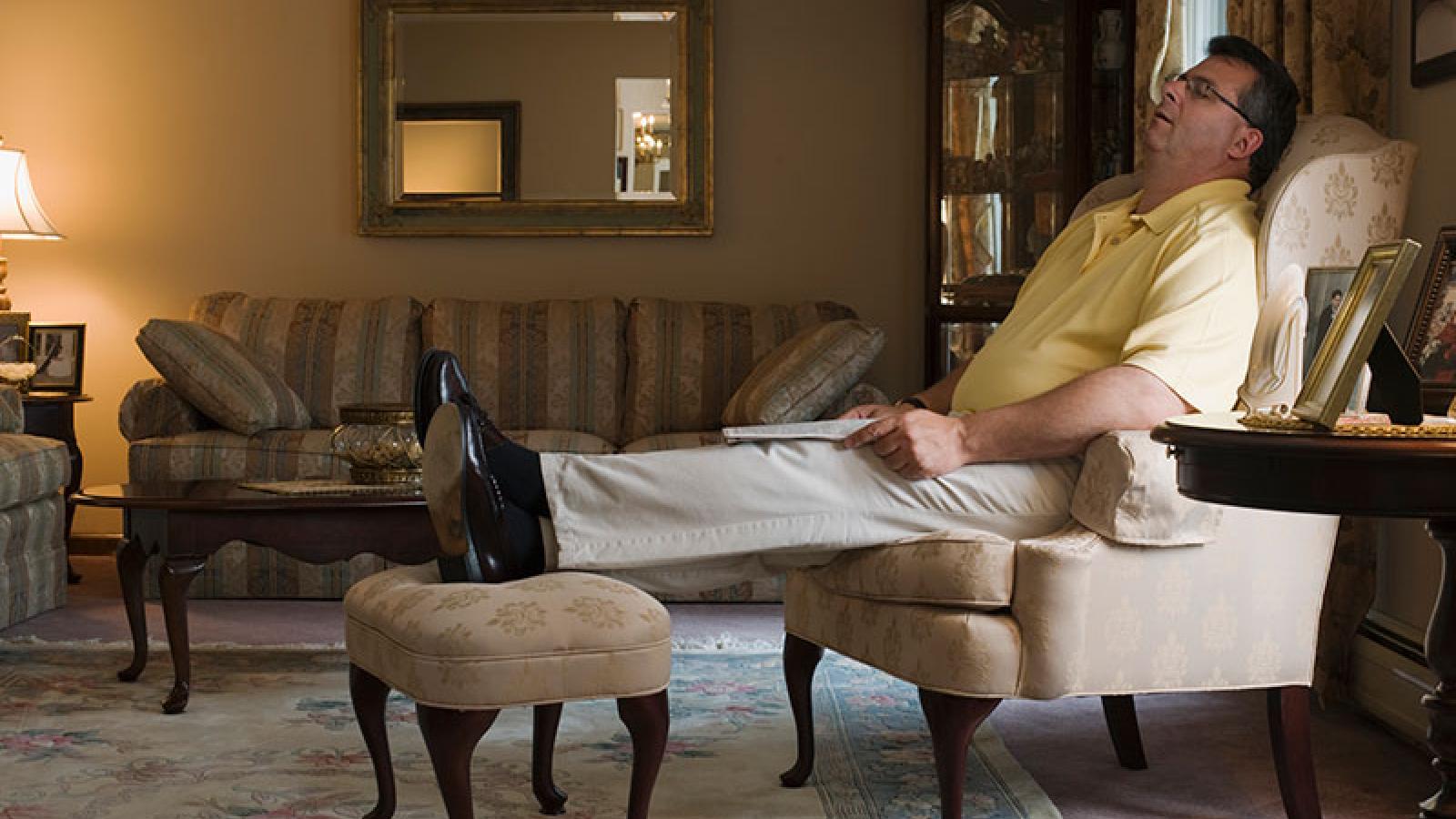Is Being Tired a Sign of Something Serious?

If you often feel sleepy, this is why it may be time to check for sleep apnea.
Do you sleep poorly at night? If so, it could be a sign that you have a serious health issue – sleep apnea – one that if left untreated could wreak lifelong havoc.
Sleep apnea is a sleep disorder that occurs when your breathing is interrupted during sleep. If you have the condition, your sleep may be affected by shallow breathing or pauses in your breathing, which can last from a few seconds to minutes. This can contribute to a fragmented, unsatisfying sleep. Not only can sleep apnea lead to fatigue, poor concentration and an increased risk of accidents, but left untreated, it can raise your risk for high blood pressure, heart arrhythmias, diabetes, obesity, heart failure and may even cause heart attack or stroke.
Although sleep apnea is more common in men – 1 in 25 middle-aged men is affected, according to the National Institutes of Health – women aren't immune. 1 in 50 middle-aged women has sleep apnea.
Many people don't know they suffer from sleep apnea. They're just used to sleeping poorly and think there's nothing they can do about it. But if you or your partner notices your sleep is frequently disrupted, talk to your doctor about whether you should have a sleep study done to check for sleep apnea.
Here are 5 facts you may not know about the sleep apnea:
- Sleep apnea is often hereditary. If a family member has sleep apnea, you're more likely to develop it.
- Being overweight can increase your risk. Obesity is a risk factor for obstructive sleep apnea but it's not the only one. The risk of having sleep apnea is 4 times greater for people who are obese compared to people at a normal weight.
- It can also affect children. Sleep apnea becomes more common as you get older, but even small children can develop it. Enlarged tonsil tissues are usually to blame.
- Your neck can hold a clue. The circumference of your neck may affect your chances of developing sleep apnea. Having a large neck – 17 inches or more in men and 15 inches or greater in women – may indicate you have a narrower airway, which can increase your risk.
- Your diet may influence your sleep apnea. Eating high-fat foods may exacerbate sleep apnea, according to research, especially for women. Researchers found that a diet with higher amounts of fat, saturated fatty acids and protein makes the condition worse.
Copyright 2017-2022 © Baldwin Publishing, Inc. All rights reserved. Health eCooking® is a registered trademark of Baldwin Publishing, Inc. Cook eKitchen™ is a designated trademark of Baldwin Publishing, Inc. Any duplication or distribution of the information contained herein without the express approval of Baldwin Publishing, Inc. is strictly prohibited.
Date Last Reviewed: March 2, 2020
Editorial Review: Andrea Cohen, Editorial Director, Baldwin Publishing, Inc. Contact Editor
Medical Review: David Cohn, MD, FCCP, Sleep Disorders Specialist
Learn more about Baldwin Publishing Inc. editorial policy, privacy policy, ADA compliance and sponsorship policy.
No information provided by Baldwin Publishing, Inc. in any article is a substitute for medical advice or treatment for any medical condition. Baldwin Publishing, Inc. strongly suggests that you use this information in consultation with your doctor or other health professional. Use or viewing of any Baldwin Publishing, Inc. article signifies your understanding and agreement to the disclaimer and acceptance of these terms of use.

